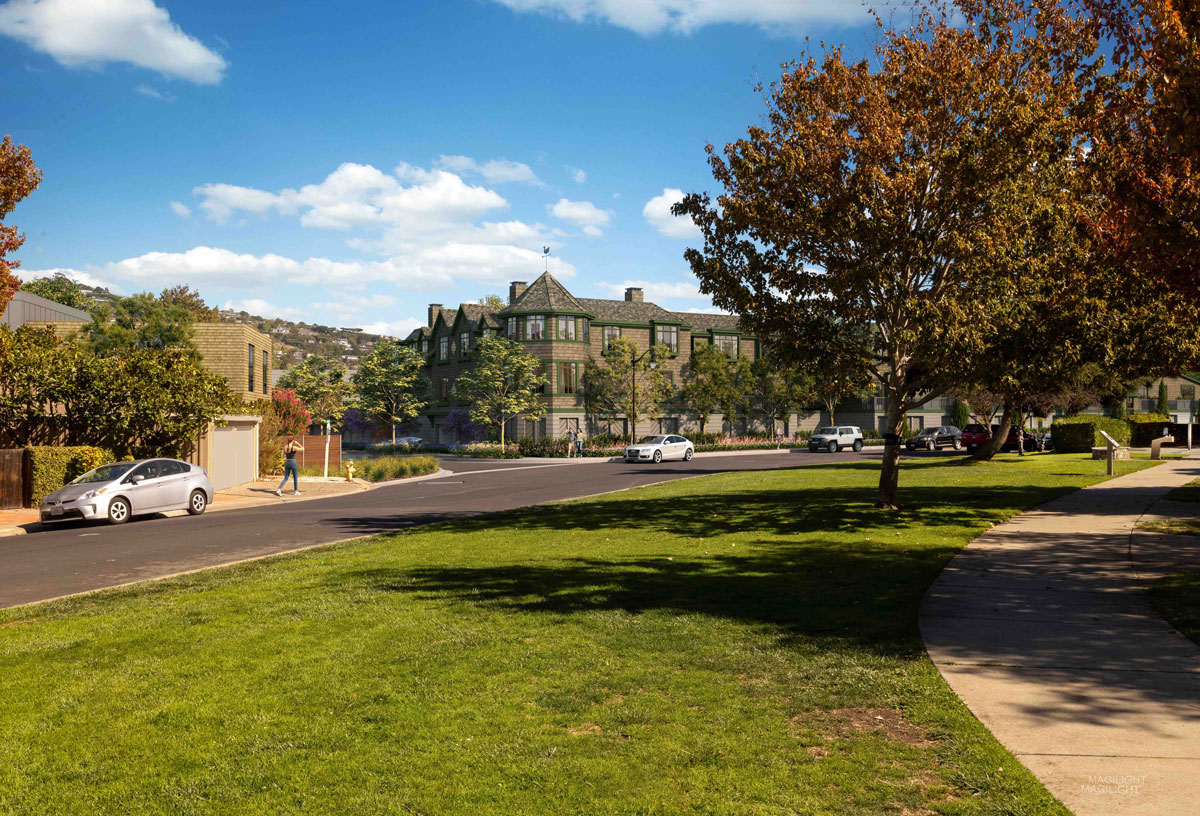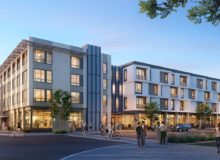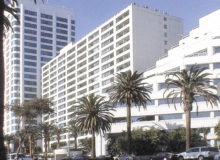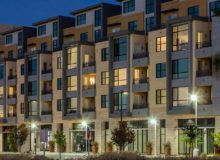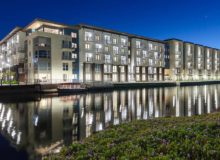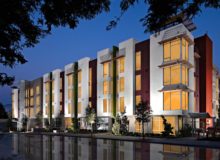San Francisco Chronicle
August 10, 2023
J.K. Dineen
More than two years after a developer submitted a “fast track” application to build 40 units in the exclusive Marin community of Belvedere, the town has still not scheduled a public hearing to review the project, which has provoked the formation of a well-funded nonprofit dedicated to killing the rental housing.
The application for the development at Mallard Pointe, a 2.8-acre parcel that is currently home to 22 rental units, was filed in June of 2021 and deemed complete by the city in June of 2022, according to Eric Hohmann, a partner with the development team. The developer, an affiliate of Thompson Dorfman Partners LLC, filed the project under Senate Bill 330, which requires the timely processing of housing applications that are consistent with local zoning rules. The project would include a 23-unit apartment building, 16 single-family homes and duplexes and one accessory dwelling unit.
While Belvedere doesn’t have an affordable housing requirement, the developer said 12 of the units will be below market rate.
“We understand that it’s a small town and they have their hands full,” Hohmann said. “But we sit here today without a public hearing scheduled. The bureaucracy seems to be moving quite slowly.”
The lack of progress comes as a new nonprofit created to fight Millard Pointe development has come out swinging, posting bright red yard signs around the affluent community suggesting that adding units at Mallard Pointe will be bad for children’s safety and make traffic worse.
The organization, Belvedere Residents for Intelligent Growth, is also raising money to fight the project. In a recent letter to residents, the group said it has “an immediate need for $30,000 to cover the costs of outside technical and legal expertise to carry us through these important upcoming discussions and hearings.”
“That assumes there are no lawsuits or litigation requiring BRIG’s action or response, which would require a separate budget,” the letter states. “The stakes are high. The developer has very deep pockets, and we need your support now. Remember, all BRIG donations are fully tax-deductible, so please be as generous as you can be.”
Hohmann said he was surprised that a group formed to block housing qualified as a nonprofit.
“We were flabbergasted to learn that they had claimed nonprofit status,” he said. “It doesn’t strike me as a charity deserving of tax-exempt status — rather they seem to be engaged in political activity.”
One of the wealthiest towns in California, the median listing price for a home in Belvedere is $4.1 million.
Both a representative for BRIG and the group’s attorney, Mark Wolfe, did not respond to calls and emails seeking comment. Belvedere Town Manager Robert Zadnik also did not return an email seeking comment.
Marin land use attorney Riley Hurd, who is representing the developer, said the Mallard Pointe battle illustrates “exactly why the state had to usurp local control” of land use decisions. Marin County, which has long been a hotbed of environmental activism, is one of the hardest places in California to build housing.
“This is the quintessential example of a small wealthy town just making it impossible not just to get a project approved but even to have a hearing,” Hurd said.
He said the project is a “textbook example of an infill development that is exempt” from doing a full study under the California Environmental Quality Act. He compared Belvedere and other Marin cities to a “naughty child who has gotten away with a lot and is now going to get their punishment.”
“It’s just a question of when and how we get there,” he said.
Hurd also said he doesn’t think BRIG qualifies as a tax-exempt nonprofit, which are supposed to be focused “on the relief of the poor, the distress of the underprivileged, the advancement of education or science.”
“That is the exact opposite of a group of homeowners who recoil at the thought of a dreaded apartment building being put up in their precious community,” Hurd said.
Meanwhile, the California Department of Housing and Community Development has emphatically rejected Belvedere’s proposed “housing element,” the state mandated plan that every city must complete. Belvedere, which must plan for 160 new units before January 2031, recently hired a new consultant to help revise the final housing element, which must be certified by the end of the year. If not, Belvedere will lose local land use control and could lose out on state funding for transportation and other projects.
In its May 1 letter rejecting the housing element, HCD took issue with Belvedere’s contention that backyard cottages, or accessory dwelling units, would account for 40 units, or 25% of the requirements. In recent years Belvedere has averaged one ADU a year — far from the five a year that the housing element says is likely. “Even the most favorable recent trends would result in a significantly lesser number of (accessory units) in the planning period,” the state wrote.
The state also addressed what appears to be a contradiction in the housing element: The town’s housing element includes plans for 47 units at Mallard Point; yet the draft suggests that the property’s R-2 zoning — which allows single-family homes and duplexes — “prohibits the use of apartment homes.”
“The element should clarify what types of housing is allowed in the R-2 zone and include a program to correct any inconsistency with the land use and housing element of the General Plan,” the HCD letter states.
In an article in The Ark, a news organization covering Belvedere and Tiburon, Matt Gelfand of Californians For Homeownership called Belvedere’s housing element “among the least compliant” in the state while Jennifer Silva of the Campaign for Fair Housing Elements said it was “the worst review in Marin so far.”
In its fundraising letter, BRIG Chairman John Hansen argues that the Mallard Pointe proposal isn’t consistent with the city’s zoning.
“Apartments are strictly prohibited in the R-2 zone meant for “duplex two-family dwellings, and many of the features and the design of the proposed project don’t conform to our City’s zoning codes and guidelines,” Hansen’s letter states.
The current owners of the Mallard Pointe site bought the property in 2020 for $21 million. At first they looked at renovating the existing units, which have cramped kitchens and small bathrooms that are not wheelchair-accessible. In addition to the antiquated layouts, there are soil settlement issues due to the units being built on filled-in marshland, which would have required that the homes be elevated 6 or 7 feet higher.
Existing tenants, who pay about $6,000 for a 1,000-square-foot two-bedroom apartment, would be given the right to return when the new units are built. They would be given $6,500 in relocation funds and another $7,500 if they choose to come back into the new apartments.
The 66-acre lagoon, home to about 280 families, is owned and maintained by the Belvedere Lagoon Property Owners’ Association. While lagoon residents sail and kayak on the landlocked water, there is no public access. Motorized boats are not permitted. Most of the homes on the lagoon were built in the 1950s, although many have been torn down and replaced with more modern structures.

